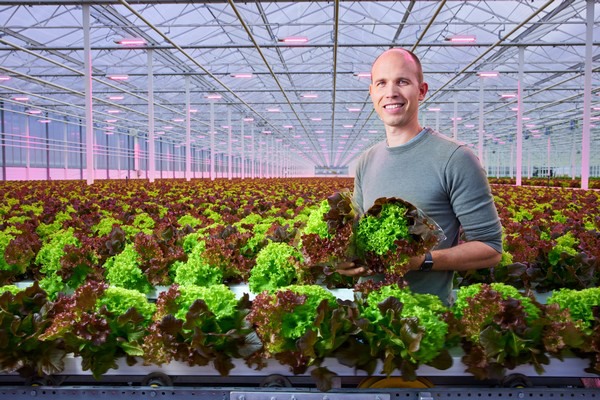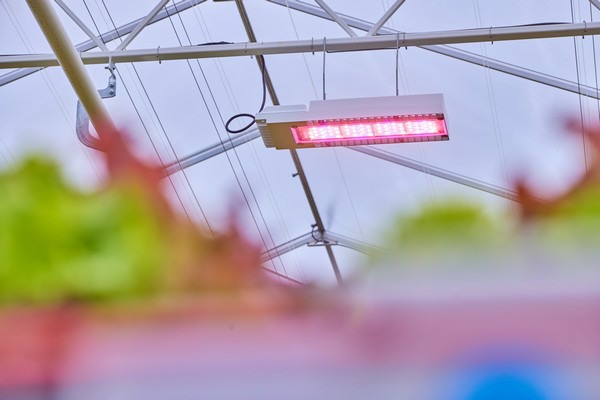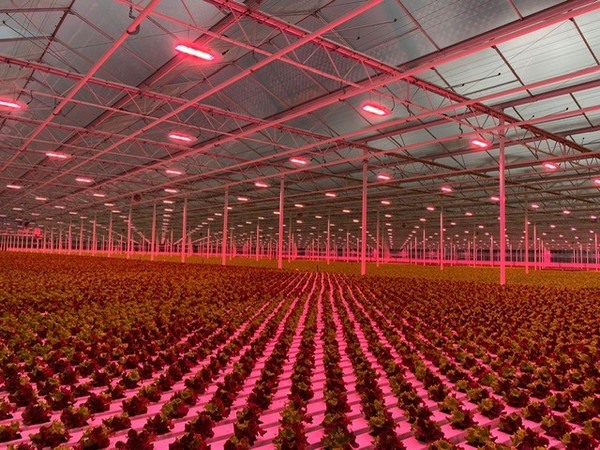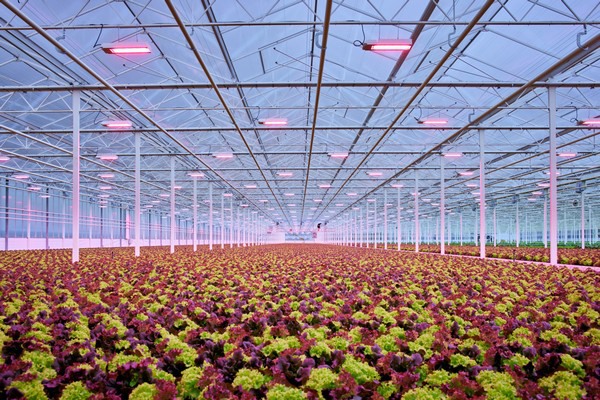Signify is helping lettuce grower De Glastuin make the switch to full LED lighting. In combination with the GrowWise Control System, the company can customize its light recipe to use far-red modules that encourage leaf expansion – an application that is unique in lettuce cultivation.
In 2020, Wouter De Bruyn, owner of De Glastuin, opted for Signify's full LED for a 0.75-hectare greenhouse expansion. Based on his positive experience with the Philips GreenPower LED toplighting compact in the new greenhouse, De Bruyn chose to replace the entire HPS installation in the existing 1.7 hectares facility with full LED this year. By adding the GrowWise Control System, the company can better tailor the lighting to match the needs of each crop and, at the same time, drastically scale back energy consumption, where necessary.


Far-red modules that can be controlled separately
The addition of the far-red Philips GreenPower LED production modules enables the lettuce leaves to stretch more. The modules can be controlled separately through the GrowWise Control System. This makes it possible to add up to 12% far-red to the standard spectrum, dependent on place and time. This is especially important in the dark winter months. De Glastuin chose this because head lettuce grows compactly under LED. "By adding far-red, the lettuce head becomes more substantial. Larger leaves make the product look a lot more attractive," explains De Bruyn. This also makes it easier to achieve the desired weight of the lettuce.
"We continue to pay close attention and perform tests with the amount of far-red used," says Peer Hermans, Plant Specialist at Signify. "Adding this can also result in too much stretching." After the installation of the full LED and the far-red modules, he continues to visit De Glastuin, optimizing the use of the modules under various conditions, together with the grower. "That's really a win-win situation," says Hermans. "Wouter is very open to suggestions. This allows us to help him with whatever he may encounter in each new situation and gives us the opportunity to learn a lot in practice."


An obvious difference with HPS lamps
De Glastuin has already been able to experiment with and learn from the first full LED installation in the new greenhouse. "We saw a big difference between the dimmable LED lighting and the existing HPS lamps. It gives us much more flexibility and control. We saw this reflected positively in both the production and the quality of the crop," says De Bruyn. Full LED is dimmable to any level. "This way, we can also make smart choices if the energy prices are higher. If we use the dimmed lights at 50%, we are only using half as much energy as before. This also results in higher efficiency." With the full LED installation, De Glastuin now has 90 μmol/m²/s lightings compared to the previous 45 μmol/m²/s at the same level of energy consumption.
"With HPS lamps, a higher light level creates the risk of burnt leaf edges," Peer Hermans explains. "With full LED, however, a grower can more easily turn the lights on without causing quality problems."
Accelerated transition
Due to the current extreme energy prices, De Bruyn has brought forward the switch to full LED. In the first half of 2022, he had two-thirds of the 1.7 hectares of HPS lamps replaced and recently did the same to the remaining one-third. Based on his positive experience with Signify during the installation in 2020, this time, there was no question: "Signify was the obvious choice for us. Trust is important when you make an investment on this scale."
 For more information:
For more information:
Signify
Daniele Damoiseaux, Global Marcom Manager Horticulture
daniela.damoiseaux@signify.com
www.philips.com/horti
